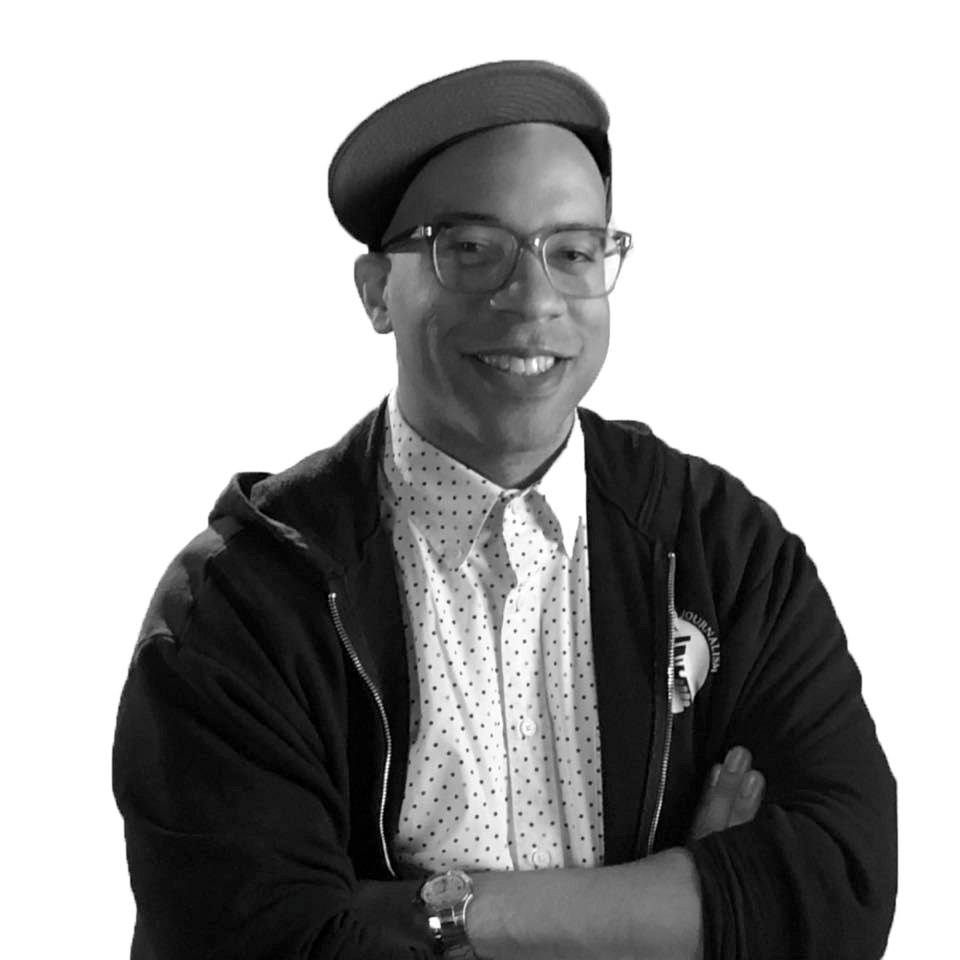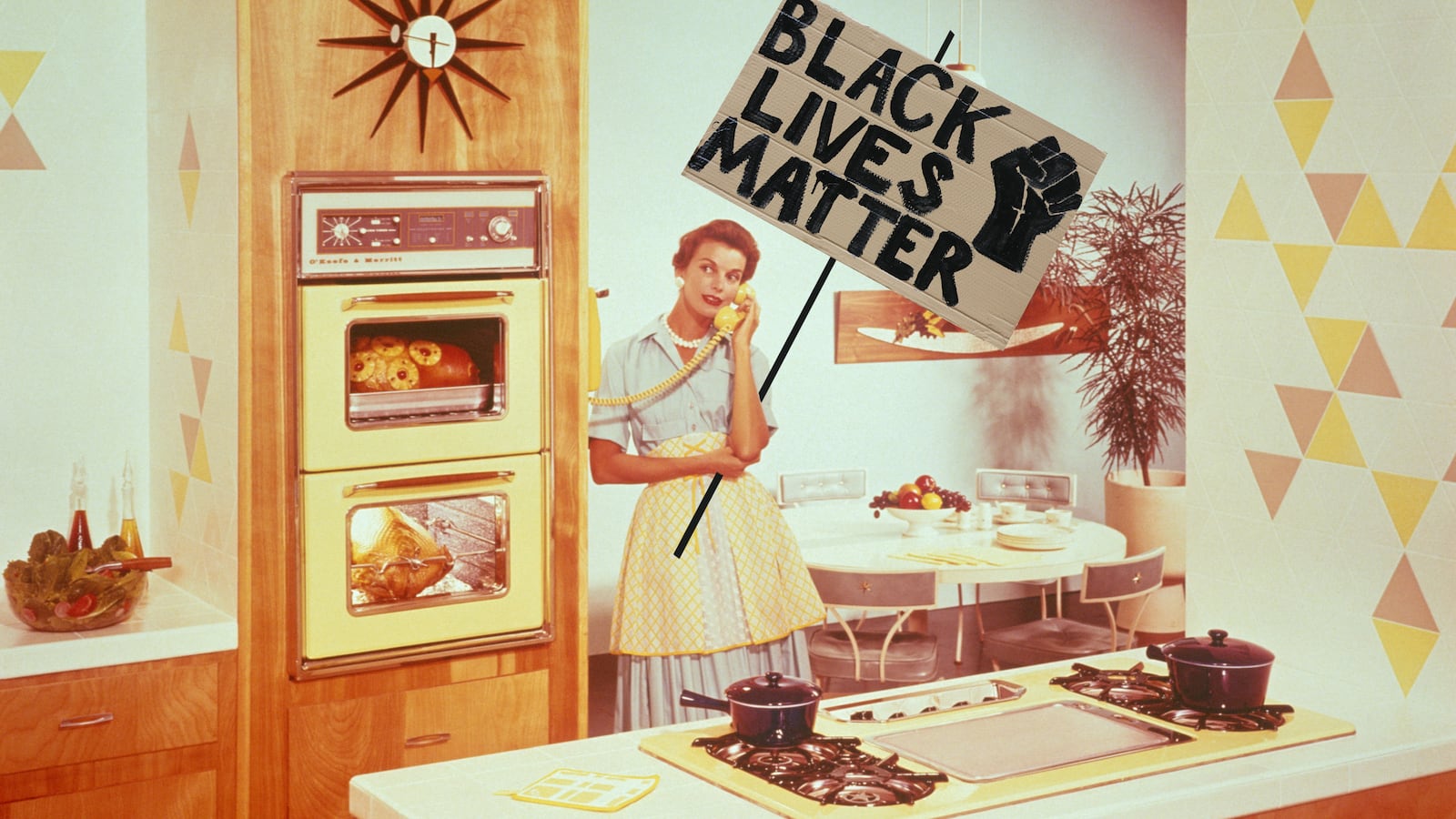This past week some of my many white friends began reaching out to seek advice about how to be a better ally. In the wake of the widespread racial unrest and rebellion following the police killing of George Floyd, an unarmed black man, their desire to do the right thing makes sense and is undeniably admirable.
But instead of looking to black people to guide you on the righteous path right now, my advice to white folks is that you would be better off looking in your own backyard. After all, it’s not black peoples’ responsibility to morally or intellectually bail you out of a problem we didn’t create, which has existed since the country's founding on the backs of our free labor and that has been exacerbated by a racist president who we overwhelmingly did not vote for.
I’m accustomed to hearing white people of all stripes defensively say that they and their ancestors played no direct role in the subjugation of black people hundreds of years ago—as if that absolves them of any complicity—but let’s put that, and the fact that they still have benefitted from institutional racism, aside for a moment.
If you’re a black person in this country, you can go to the best schools, you can obey the law at all times, and still live in fear of a police officer or really any white person with an itchy 9-1-1 finger because this is America. Breonna Taylor getting killed just for being black in her own home is just further proof that people who like to pretend the civil rights movement solved racism in the 1960s are deluding themselves.
When Donald Trump decided it was beneficial to him and his brand to exploit racism directed at the first African-American president, he wasn’t banished to the background of American life like he should have been. His profile was elevated for it, even when all of his oft-repeated claims of finding ‘evidence’ to support his false allegations never came to be.
Far too many white Americans paid lip service to the pain and division Donald Trump’s years-long birther crusade caused people like me during the Obama years. Perhaps they thought it was just a publicity stunt, but for millions of African-Americans it was a daily reminder that even when one of us is occupying the highest office in the land, a privileged white person (even one who has severe credibility issues of their own) can and will say we’re counterfeit, that somehow we don’t belong—and ultimately will benefit from denigrating us.
That original national sin on Trump’s part (non-New Yorkers can perhaps be forgiven for not being intimately familiar with his history of race-baiting over the previous decades) was tacitly endorsed by none other than his current Republican arch-nemesis Mitt Romney, who sought and accepted the Apprentice star’s approval during his 2012 presidential run. Romney himself never defended birtherism, but by seeking Trump’s support he was acknowledging that a whole lot of his supporters were fans of it, and he was cool with that. Black people took note.
Four years later, we watched as far too few white people felt the need to strongly condemn him when he launched his own campaign for the White House by casually calling Mexican immigrants “rapists.” Just another publicity stunt.
In fact, when he joined his fellow Republicans on the campaign trail, many were complimentary at first. Remember John Kasich? He was supposedly a moderate voice, who never endorsed Trump and was even viewed as a potential 2020 challenger. Kasich said this is his first debate appearance alongside Trump:
“We need to take lessons from Donald Trump… Donald Trump is hitting a nerve in this country. He is. He’s hitting a nerve. People are frustrated. They’re fed up. They don’t think the government is working for them. And for people that want to just tune him out, they’re making a mistake.”
Of course, when Trump started to show real polling momentum, his opponents began to sing a different tune. Then, one by one, GOP contenders tried and failed to call out Trump. Their criticisms, however, rarely if ever had to do with his racism.
And even those that did had to choose their words carefully, because they inherently knew they too needed the support of bigots to win. Shockingly, their condescending overtures for black voters to leave the Democratic “plantation” didn’t persuade many of us to join their cause.
At the end of the day, Trump won because white voters—including white women, who were expected to be a vulnerability—united behind him. This betrayal was not lost on many black people, who’d been supporting candidates who were far from perfect for years, secure in their knowledge their choice was best for all Americans, not just themselves.
If millions of white people who knew better didn’t look the other way, Trump could never have won the Republican nomination, or the presidency of the United States.
White voters by and large inflicted this race-baiter upon us—you rarely hear black voters talking about ‘taking a chance’ with their vote or arguing the difference between candidates is negligible—and now African-Americans are expected to both protest politely and vote in record numbers to resolve this situation.
Even with historic unemployment, over 100,000 dead from the coronavirus and cities burning across this country, a solid majority of white Americans still support this president. Not enough work has been done by white people who know better to interrogate why that is.
By the law of averages, most “Never Trump” white Americans likely have someone in their family, friend circle and almost certainly, their Facebook page, who harbors bigoted beliefs. They frustrate you and embarrass you, but have you really challenged their conspiracy theories or factually bankrupt arguments?
When your white friends think they’re blowing your mind by telling you that the Democratic party used to be a haven for the KKK, do you remind them of what’s taken place over the last 45 years?
Or when your peers downgrade the humanity of black and brown people by placing more importance on the destruction of inanimate objects, do you literally socially distance yourself from them or do you shrug and say “what can you do?”
Reaching out to your black friends for guidance or to show empathy is well and good, but policing your own people and having a conversation amongst yourselves about the problem would be even more constructive.
Black Lives Matter activists are probably not going to be as persuasive with someone in the Fox News bubble as someone who sits across the table from them. Think of it like the #MeToo movement, it’s not enough to look at bad behavior and pat yourself on the back for not engaging in it yourself, you need to also look at who you surround yourself with and the behavior you’ve countenanced in the past.
White people, do the uncomfortable, right thing and clean house in your own hearts, your own homes and in your own community.
We don’t have the luxury of disassociating ourselves from our blackness, and yet you get to do that every day when it comes to the bad actors in your culture. Maybe it’s time that stopped.






